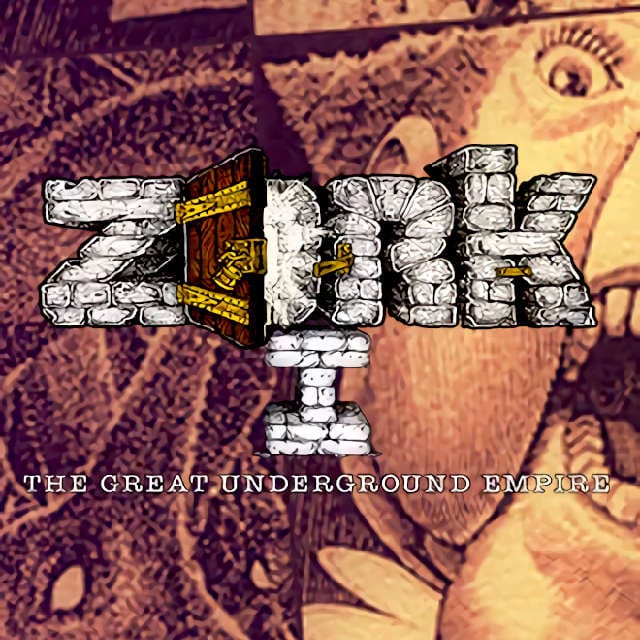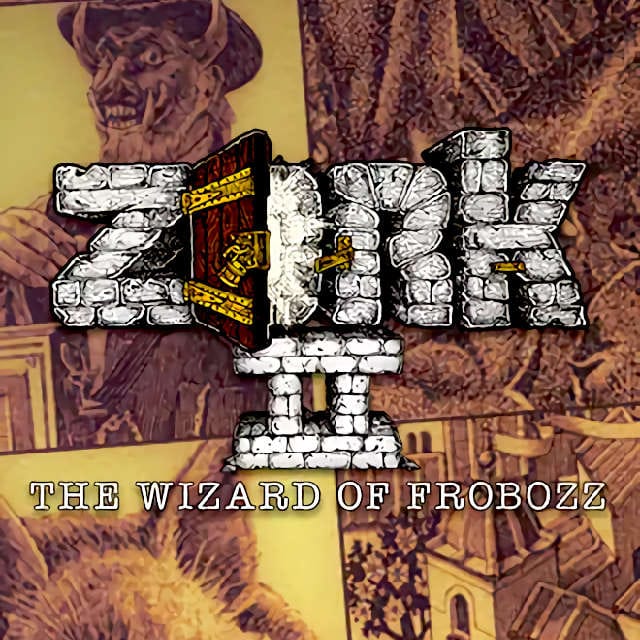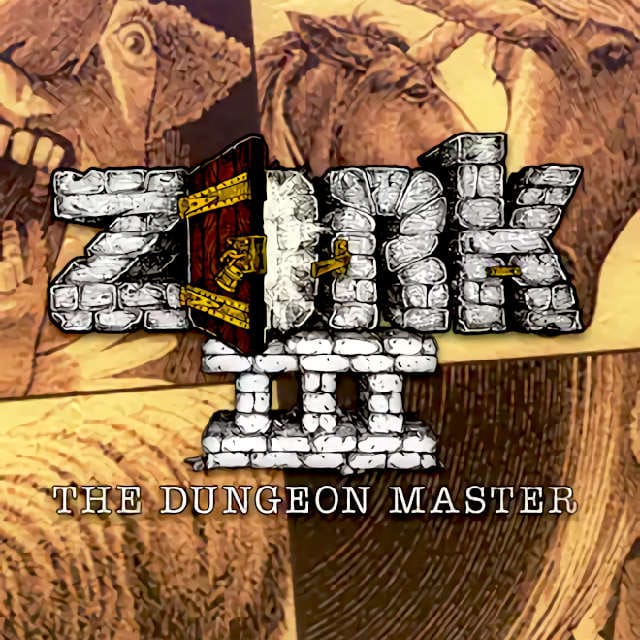
(Review archived from January 30, 2019)
In some ways it’s a bit unfortunate that text adventures fell out of favor as graphical processing became more and more advanced, and consequently (I would imagine) due to the idea that graphical adventure formats were more palatable ‘to the masses’. After all, even in the modern age, no computer generated graphics can compare to those rendered in the mind’s eye. So despite the fact that a text parser interface can feel a bit antiquated, there’s still something timeless about the text adventure format even in a modern setting. And as text adventures go, there are perhaps none quite so legendary and influential as Zork, the granddaddy of them all. This certainly isn’t to say that Zork was the first text adventure, but it was certainly the most sophisticated at the time of its release, both in the quality of writing and in terms of its text parser.
I played the games in the original Zork trilogy back to back, but it needs to be said that this trilogy is a bit like The Lord of the Rings. It consists of three separate titles, but was written as one epic tale. As a result each title in the trilogy is quite similar in style and they all use the same text parser. I was actually quite impressed with the quality of the parser though, as it feels a lot more robust and sophisticated compared to similar text adventures I’ve played from this era (Transylvania being one example that leaps to mind). Naturally the parser wasn’t able to properly interpret every command I fed in to it, but by the same token it was pretty rare that I had to rephrase a command more than once. Once you ‘learn the ropes’ of the parser and the types of phrases that will work, it almost becomes second nature. I read an interesting article describing some of the QA process that went into the parser which is pretty enlightening regarding the quality of the final product.
“The MIT machines were a nerd magnet for kids who had access to the Arpanet,” says Anderson. “They would see someone running something called Zork, rummage around in the MIT file system, find and play the game, and tell their friends.” The MIT mainframe operating system (called ITS) let Zork’s creators remotely watch users type in real time, which revealed common mistakes. “If we found a lot of people using a word the game didn’t support, we would add it as a synonym,” says Daniels.
MIT Technology Review – The Enduring Legacy of Zork
So the parser sort of grew organically according to usage patterns of people who were actually using it in real time. Brilliant! (Leave it to MIT students, lol)
The writing is … interesting. It’s not exactly top notch fantasy writing, but it’s not bad, and I certainly don’t mean that as a knock against the game. There’s not a lot of characterization in Zork, and it’s pretty light on overall story elements, even when taking into account the grander story arc of the trilogy. But it’s in the detailed descriptions of the world in which you find yourself that Zork really starts to shine. The world building here is pretty impressive, and there’s a great sense of humor throughout. It’s actually in this regard (among others) that I feel Zork was incredibly influential to adventure games that would follow it. The offbeat sort of ‘nerd humor’ which permeates Zork would find its way into Sierra and Lucasarts adventures even many years after its release. It codified certain tonal elements for adventure games that would become the lingua franca of the genre for well over a decade.
As I mentioned, these games really serve as one long text adventure game, but here are some quick thoughts on each individual entry.
Zork I: The Great Underground Empire (PC/GOG)

I suppose it’s no surprise to suggest that if you only play one Zork text adventure, make it this one. This one is probably the most ‘refined’ of the bunch, and the puzzles are relatively manageable. And right from the get-go all the iconic elements are here, the lamp, the mailbox, the cottage, the titular Great Underground Empire (Protip #1: The rest of the series will occasionally abbreviate this simply as GUE – took me longer than I care to admit to put that together!) and before you know it you’re being eaten by a Grue. The GOG release of these games includes a complete set of maps for all of the games, but if you don’t plan of using the materials provided, do plan on making some maps of your own. This world is huge! (Protip #2: I spent almost the entire game typing out ‘North’, ‘South’, ‘Northwest’, etc. before realizing I could simply type ‘n’, ‘s’ ‘nw’ and so forth. Don’t be like me!)
Favorite Part: In the fight with the troll, knock him out and take his club. Then wake him up and give him back the club. Fighting like a true gentleman! XD
Zork II: The Wizard of Frobozz (PC/GOG)

In the second game Zork takes a turn for the surreal. Several elements and puzzles borrow elements from fairy tales (most notably Alice in Wonderland), and as a result some of these puzzles are real bastards. The spinning room puzzle took me a long time to figure out. But at the same time it’s here that we start to learn about the history of the GUE and the world feels richer as a result.
Favorite Part: Using plastic explosive to blow up the vault in order to steal the crown and subsequently making a getaway in the hot air balloon. This is my kind of heist! (This crown is rather hilariously referenced in the third game).
Zork III: The Dungeon Master (PC/GOG)

It’s possible that I was just getting slightly better at making my way through Zork by this point in the trilogy, but this really seemed like the shortest game of the bunch. At the same time though this one had come of the most excruciating puzzles. OMG the sliding block puzzle! The frickin’ rotating room puzzle!! Seriously, the puzzles in this one start to border on not-so-fun. But after all that time spent in the depths of Zork it was rewarding to see the trilogy come to its conclusion. Weirdly this one makes significant alterations to the point system. Where the previous games allowed for scores in the hundreds, this one allows for a max score of less than 10. Odd.
Favorite Part: Tie. It’s worth getting caught using the time machine just to see the funny consequences play out (save beforehand!). But ultimately it’s the end of the game that’s probably the highlight. It’s telegraphed throughout the entire game, but it’s a rewarding conclusion all the same.
Final Verdict
I really enjoyed the Zork trilogy. If you’re burned out on modern gaming, and don’t mind taking a text heavy ‘voyage of the imagination’, Zork is definitely worth your time.
Leave a Reply